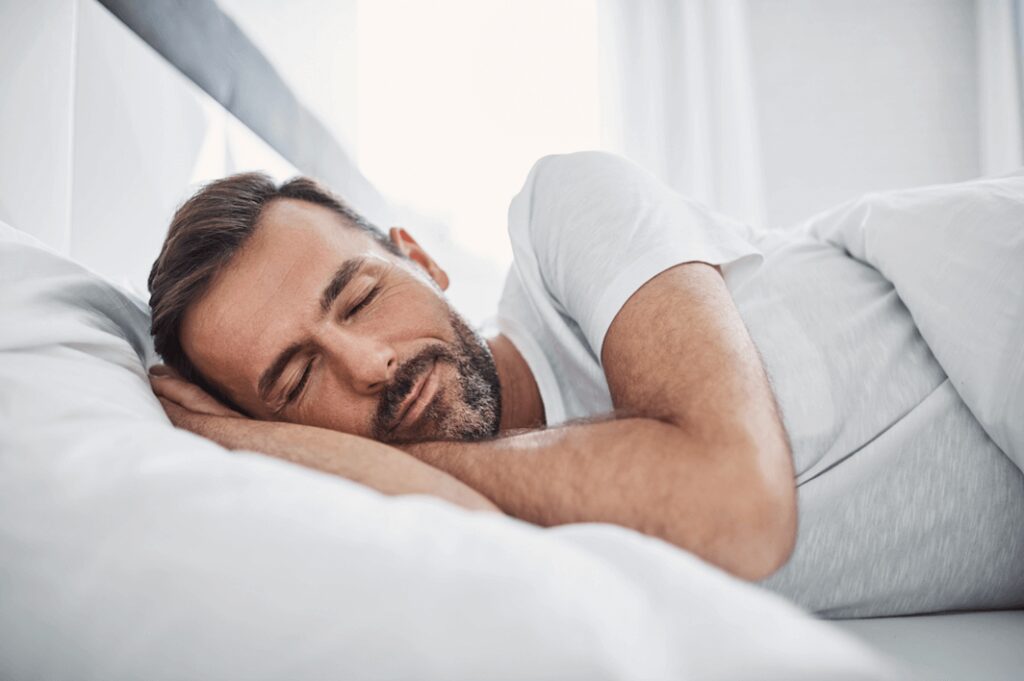Many patients wake up exhausted every morning, even after a full night’s sleep. Insomnia and even snoring can be signs of sleep apnea. Not only does sleep apnea rob you of much-needed rest, but it can also rob your health in other ways. Receiving treatment for sleep apnea in our Tulsa, OK, dental office can restore your health and comfort when sleeping. In addition to providing sleep apnea treatment, we offer various restorative dentistry services.
When you sleep, your tongue and the soft tissues in the back of your mouth relax. When these tissues partially block your breathing passage, they vibrate and lead to snoring. Sometimes, they can completely block your breathing passage, causing obstructive sleep apnea. When this occurs, you don’t get adequate oxygen.
Eventually, your brain detects the deficiency and will startle you to take a breath, interrupting your sleep. This cycle of oxygen depletion and arousal can happen repeatedly in your sleep without you even being aware.

Sleep Apnea Symptoms
Unfortunately, it is difficult for many patients to recognize that they have sleep apnea. You may not realize you experience interrupted breathing during sleep. It is more likely your partner will notice, so you could ask him or her to be aware of the symptoms.
The most common signs of sleep apnea include:
- Snoring
- High blood pressure
- Gasping or stopping breathing in the night
- Daytime tiredness with a full night’s sleep
- Lack of concentration
- Memory loss
- Mouth breathing
- A sore throat without an illness
- Dry mouth
- Teeth grinding
Some patients are more at risk of developing sleep apnea than others. Patients who are at a high risk of experiencing sleep apnea are often:
- Male
- Over 40
- Overweight
- Heavy smokers
- Alcohol users
Neck circumference and a narrow airway make a big difference in sleep apnea. If you have a narrow airway, you receive less oxygen during sleep. Generally, patients are also at an increased risk of sleep apnea if they have a large neck size. Sleep apnea can affect men with a neck circumference of at least 17 inches. Women with a neck circumference of at least 16 inches may also be prone to sleep apnea.
Drinking and smoking contribute to inflammation and relaxation in the airway. Smoking cigarettes and vaping increases inflammation, which can narrow the airway. Heavy drinking can increase the risk of obstructive sleep apnea as alcohol relaxes the muscles in the upper airway.
Your sleeping position can also worsen sleep apnea symptoms. Sleeping on your back increases the chance of soft tissues blocking your airway during sleep. Keeping the airway open is easier if you sleep on your side or stomach.
Sleep Apnea and Everyday Problems
A lack of a good night’s sleep carries over into work, school, and other daytime activities. If you have daytime sleepiness due to sleep apnea, you can also experience:
- Reduced reaction time
- Mood swings
- Concentration problems
- Depression
- Irritability
At best, you can wake up with a poor attitude. But in some cases, poor sleep can lead to work accidents and impaired driving. A lack of sleep can also increase the risk of chronic health problems. Obesity, depression, and heart problems are all linked to sleep deprivation.
How to Treat Sleep Apnea
Before treatment, you can receive an at-home sleep test or visit a lab for a sleep study. You’re typically recommended a CPAP machine once you are diagnosed with sleep apnea. The Continuous Positive Airway Pressure (or CPAP) machine is the traditional sleep apnea treatment. It delivers oxygen through a mask to keep the airway open.
Many patients find this uncomfortable and dislike wearing a mask on their faces throughout the night. CPAP machines are also noisy, so patients find it difficult to get to sleep in the first place.
Oral Appliance Therapy
Today, we provide alternatives to CPAP machines. Our dental office provides oral appliances for sleep apnea in Tulsa, OK. An oral appliance adjusts the position of your mouth. It opens up the posterior muscles that block your airway while you sleep.
Some oral appliances are bulky and can open your bite too much, leading to other problems like jaw pain. Dr. Trace Bridges strongly believes in physiological care. The device should work with how your body functions, not against it. Our sleep apnea appliances are small, portable, and comfortable. It also adjusts in smaller increments to eliminate titration problems.
Treating sleep apnea can improve your sleep and help increase your energy levels during the day. It can also prevent additional health problems or chronic health flare-ups.
Sleep Apnea FAQs
Discover more about sleep apnea in Tulsa, OK, with answers to these common questions:
What are the benefits of sleep apnea treatment?
Our sleep apnea solutions can improve your overall health and quality of life in many ways. Treating sleep apnea helps you get better sleep, which leads to feeling more rested and energized during the day. You’ll likely notice improved concentration, memory, and mood with better sleep. Treating sleep apnea can also reduce the risk of serious health issues like high blood pressure, heart disease, and stroke.
When you address sleep apnea, you can prevent loud snoring that may disturb your partner’s sleep. If you’ve been feeling tired or drowsy throughout the day, sleep apnea treatment may help you feel more alert and awake. Treating sleep apnea can make a big difference in your overall health, energy levels, and happiness.
Can sleep apnea increase heart problems?
If you already have heart problems, developing sleep apnea can increase the frequency of symptoms. Continual pauses in breathing put stress on your heart. Whenever you stop breathing during sleep apnea, your oxygen level drops. Your body reacts by increasing stress hormones. Increased stress levels also increase blood pressure and LDL.
Left untreated, sleep apnea can increase the chance of stroke and heart attack. Sleep apnea is also linked to problems like diabetes and cardiovascular disease. Please receive professional care if you have heart problems and notice signs of sleep apnea. Addressing sleep apnea can help improve your heart health and overall health.
What happens when I get a sleep appliance?
When you get a sleep appliance at our dental office, we’ll discuss your sleep issues like snoring or sleep apnea. We will check your teeth, jaw, and airway to see if a sleep appliance is right for you.
Then we’ll take digital scans of your teeth. This helps us create a custom appliance that fits your mouth perfectly. Once the appliance is ready, you’ll return to try it on. We’ll ensure it fits comfortably and explain how to use and care for it.
Dr. Bridges will also schedule a follow-up to check how the appliance is working and make adjustments if needed.
How is weight related to sleep apnea?
When someone gains weight, especially around the neck and throat area, it can put extra pressure on the airway. This makes the airway narrower, which can cause it to collapse or get blocked during sleep, leading to sleep apnea.
Losing weight can often help reduce sleep apnea symptoms because it takes pressure off the airway and improves breathing. However, not everyone with sleep apnea is overweight, and not everyone who is overweight has sleep apnea.
Am I more likely to develop sleep apnea if I smoke?
Yes. Smoking irritates and inflames the tissues in your throat and airways, causing them to swell. This can narrow your airway, making breathing harder to breathe while you sleep. Smoking can also lead to more mucus buildup in your airways. This can block airflow even more.
Smoking is also linked to other health problems, like lung issues and weight gain, which can also raise your risk of sleep apnea. If you quit smoking, you may see a decrease in sleep apnea symptoms.
Are sleep apnea and teeth grinding related?
Yes, some people can have both problems because of stress on the body. When the airway is blocked and you restart breathing, the body experiences continual stress. Teeth grinding might happen as a response to this stress, as the body tries to reopen the airway by moving the jaw.
Both conditions are linked to poor sleep quality. Treating sleep apnea can sometimes reduce teeth grinding.
Do I have a sleep disorder if I snore?
If you frequently snore, you may wonder if that also means you have sleep apnea. Sometimes, you can experience snoring if you have sleep apnea. But you do not automatically have sleep apnea if you snore.
Snoring and sleep apnea are not the same. When you snore, air passes through the throat, creating vibrations and noise. Sleep apnea occurs when you have a blocked airway.
How much does sleep apnea treatment cost?
The cost of sleep apnea treatment can vary depending on the type of treatment you need. CPAP machines and oral appliances cost less than surgery, which we recommend for patients with severe problems.
Medical or dental insurance might cover some of the costs, especially if the treatment is medically necessary. Check with your insurance provider and talk to our dentist about what’s best for you.
Prevent Disruptive Snoring
Get better and more restful sleep. If you suspect you’re suffering from sleep apnea, call Hope Restorative and Cosmetic Dentistry today at 918-347-1114. Feel free to request a dental appointment with Dr. Bridges on our website.
We’re here to provide effective sleep apnea treatment in Tulsa, OK. Contact our office if you have any questions about sleep apnea or oral appliance therapy. We want to help you understand your treatment options.
